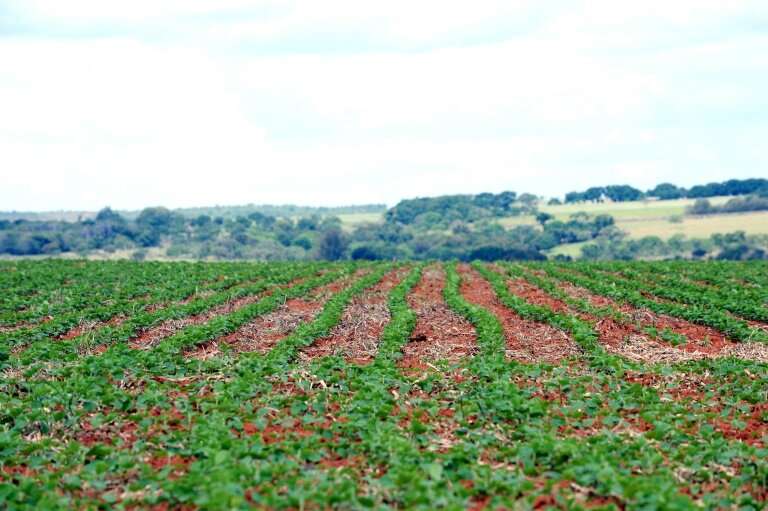Chinese imports of Brazilian soya beans have increased 2000 percent so far this century
The simmering trade war between the United States and China risks devastating the Amazon rainforest as Beijing looks for ways to make up a shortfall in US-grown soya beans, experts warned on Wednesday.
Over the last eight months, the US and China have slapped tariffs on more than $360 billion in two-way goods trade, weighing on the manufacturing sectors in both countries.
One US export especially hard hit by the tit-for-tat measures has been soya beans, most of which are used for animal feed.
Chinese imports of US soya products "basically collapsed to zero" at the end of 2018, according to the authors of an article in the journal Nature on how the trade war may unexpectedly impact Brazil's Amazon rainforest.
Due to China's insatiable demand for meat products and its reliance on imported soya beans to feed its livestock, the authors said that Brazil would need to take up the production slack if the dispute drags on.
Chinese imports of soya have already grown twenty times since 2000.
Using UN data and consumption trends, exports estimated that the area dedicated to soya production in Brazil could increase by as much as 39 percent—an additional 13 million hectares (32 million acres).
That is a rainforest the size of Greece.
"It's quite striking. This is the worst-case scenario," said Richard Fuchs, senior research fellow at the Institute of Meteorology and Climate Research, in Karlsruhe, Germany.
"But we know that there are only a few players out there, the important (soya bean) producers are the US, Brazil and Argentina," he told AFP.
10 mn tonnes less meat
Fuchs and his colleagues warned that any additional mass deforestation of the Amazon for agribusiness ventures "will have profound impacts on global attempts to mitigate climate change and protect biodiversity."
At current rates, tropical deforestation alone is set to release up to 13 gigatonnes of carbon into the atmosphere by the end of the centry.
The authors stressed that other countries, notably Argentina, could up their production to offset China's soya bean shortfall.
In addition, China could choose to rely less heavily on imported soya. This seems unlikely, as just a two percent cut in soya for animal feed would result in 10 million tonnes less meat per year for the country's burgeoning middle class.
The researchers said both history and worrying signals from Brazil's newly installed President Jair Bolsonaro suggested that China's soya deficit will be compensated by greater production in the Amazon.
Following a 1980 US embargo on soya products to the Soviet Union, the amount of land devoted to soya production in Brazil more than doubled between 1990 and 2010, to more than 24 million hectares.
Bolsonaro has sought to limit the land rights of the Amazon's indigenous people and plans to merge the environment and agriculture ministries in moves activists have warned could imperil the rainforest.
Fuchs argued that the US-China trade war had exposed dangerous imbalances in global agriculture.
"Over 80 percent of crop production in the US is maize and soya bean grown in rotation, largely for export," he said.
"If you have a few producers supplying the world market they become highly vulnerable to trade tensions as we see right now."
More information: US–China trade war imperils Amazon rainforest, Nature (2019). DOI: 10.1038/d41586-019-00896-2 , www.nature.com/articles/d41586-019-00896-2
Journal information: Nature
© 2019 AFP























